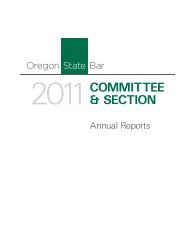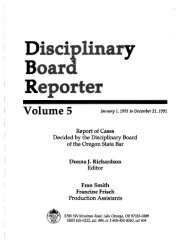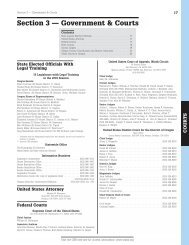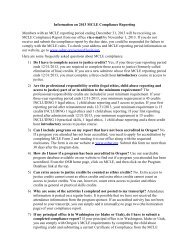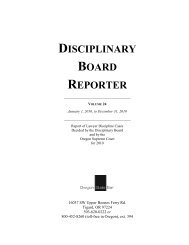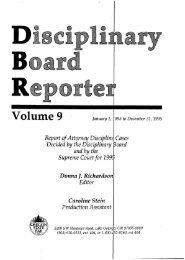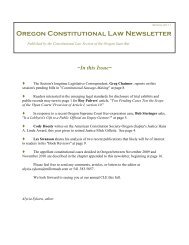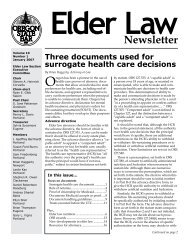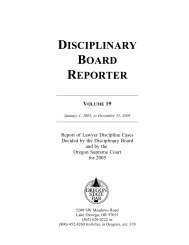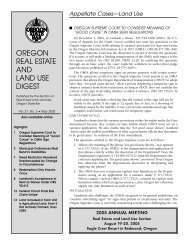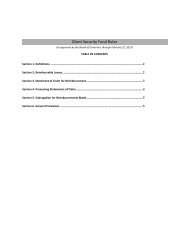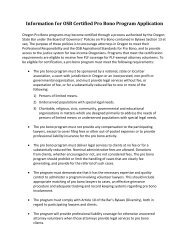MPT Grading Materials July 2010 - Oregon State Bar
MPT Grading Materials July 2010 - Oregon State Bar
MPT Grading Materials July 2010 - Oregon State Bar
You also want an ePaper? Increase the reach of your titles
YUMPU automatically turns print PDFs into web optimized ePapers that Google loves.
Multistate Performance Test<br />
In re Hammond<br />
Model Answer<br />
MEMORANDUM<br />
TO: Jane Spencer<br />
FROM: Applicant<br />
RE: Draft argument to support Motion to Quash (Carol Walker case)<br />
DATE: <strong>July</strong> 27, <strong>2010</strong><br />
Argument<br />
Attorney Carol Walker May Not Be Compelled to Appear before the Grand Jury to<br />
Disclose Her Communications with Her Client William Hammond. Both Rule 1.6 of the<br />
Franklin Rules of Professional Conduct and Franklin Rule of Evidence 513 Prohibit Such<br />
Testimony in This Case.<br />
A. Rule 1.6 of the Franklin Rules of Professional Conduct Does Not Permit Disclosure<br />
and in Fact Prohibits Attorney Carol Walker from Testifying before the Grand<br />
Jury about Her Communications with Her Client William Hammond.<br />
On May 10, <strong>2010</strong>, Hammond’s building was destroyed by a fire of unknown origin. The<br />
next day, Hammond was questioned by the Gordon Police Department regarding the fire. He<br />
answered police questions. On May 12, Hammond retained attorney Carol Walker. When the<br />
police re-contacted Hammond on May 14 regarding the fire, Hammond referred questions to<br />
Walker.<br />
On <strong>July</strong> 22, <strong>2010</strong>, Gordon County District Attorney Shirley S. Grant subpoenaed<br />
Attorney Walker to appear before the grand jury investigating the fire and ordered her to disclose<br />
her communications with Hammond and all related materials. She seeks to quash the subpoena<br />
for the reasons set forth below.<br />
An examination of Rule 1.6 of the Franklin Rules of Professional Conduct (Rule 1.6)<br />
leads to the conclusion that Walker may not be compelled to appear pursuant to the Gordon<br />
County District Attorney’s subpoena to testify and produce documents before the grand jury<br />
regarding her communications with Hammond about the fire. Such disclosure is not permitted<br />
and is in fact prohibited by the Rule.<br />
The protection afforded to attorney-client communications under Rule 1.6 is very broad.<br />
It is one of the hallmarks of our legal system. Under Rule 1.6, a lawyer may not, as a general<br />
matter, reveal information relating to the representation of a client, whether or not that<br />
information consists of a communication between lawyer and client, and whether or not it is<br />
17



